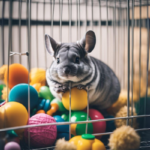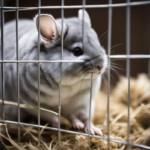Chinchillas are undeniably adorable creatures, known for their soft fur and lively antics. However, a question that often lingers in the minds of prospective chinchilla owners is, “Do Chinchillas Bite?”
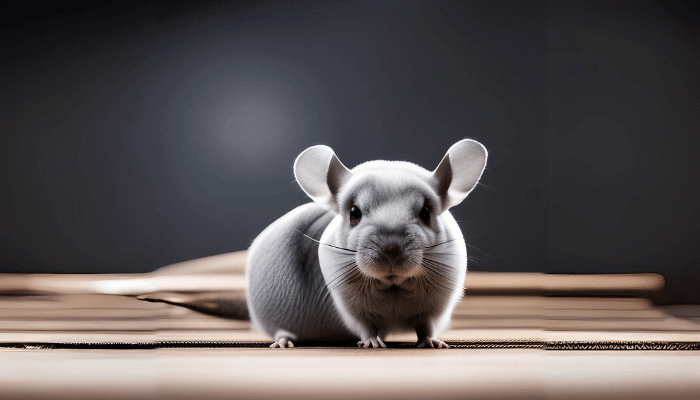
Let’s embark on a journey to understand the biting behavior of these furry companions and explore the factors influencing their temperament.
Do Chinchillas Bite? An Insightful Overview
Are chinchillas naturally prone to biting, or is it just a misunderstood aspect of their behaviour?
Chinchillas, by nature, are not aggressive animals. However, like any pet, they may bite for various reasons, such as fear, stress, or discomfort. It’s essential to understand their behaviour and provide the right environment to minimize the likelihood of bites.
Understanding Chinchilla Behavior
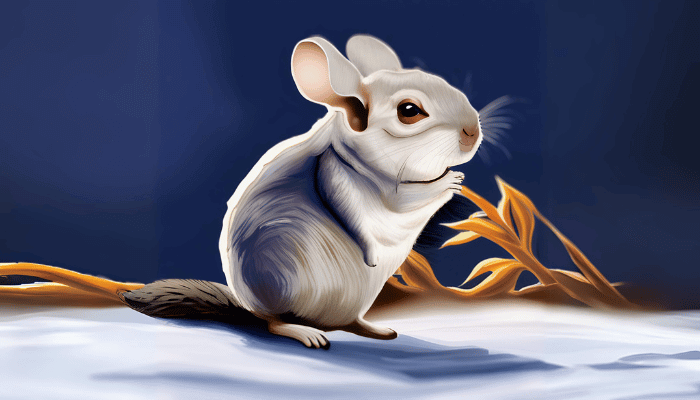
Chinchillas are known for their quirky behaviour and unique personalities. To comprehend their biting habits, let’s explore the underlying factors that contribute to their actions.
Social Dynamics of Chinchillas
Chinchillas are highly social animals, often living in colonies in their natural habitat. When kept as pets, understanding their social needs is crucial in deciphering if and when they might resort to biting.
Territorial Instincts: Do Chinchillas Bite to Defend Their Space?
Chinchillas are territorial creatures. Their biting tendencies may stem from a desire to protect their designated space. Understanding their territorial instincts is essential in fostering a harmonious relationship.
Communication Through Biting
For chinchillas, biting can be a form of communication. It’s vital to decipher the different types of bites and what they signify. Is it an expression of affection, a warning, or perhaps a sign of discomfort?
Do Chinchillas Bite?

One might wonder, “Do Chinchillas Bite?” The answer lies in their inherent nature. Chinchillas may bite for various reasons, such as fear, stress, or territorial instincts. However, it’s essential to note that not all chinchillas exhibit aggressive behavior, and biting is often a response to specific stimuli.
Do Chinchillas Bite Humans?
Do Chinchillas Bite Humans? The answer is a nuanced one. While chinchillas may bite if they feel threatened or scared, with proper handling and bonding, the risk of bites significantly decreases.
Factors Influencing Biting Behavior

Let’s tackle the pressing question head-on: Do Chinchillas Bite?
Chinchillas do have a propensity to bite, but the frequency and severity vary among individuals. It’s crucial to explore the reasons behind their biting behaviour to address and manage it effectively.
Territorial Instincts
Chinchillas are territorial creatures, and biting can be a defence mechanism to protect their space. Introducing a new chinchilla to an established group or environment may trigger territorial aggression.
Teething Troubles
Similar to human babies, chinchillas go through teething. Biting might be their way of alleviating discomfort during this phase. Providing suitable chew toys can be a game-changer in curbing unwanted nibbling.
Fear and Stress
Like many animals, chinchillas may bite when they feel threatened or stressed. Sudden movements, loud noises, or unfamiliar surroundings can induce fear, leading to defensive biting.
Health Issues
Pain or discomfort due to underlying health issues can also contribute to biting behaviour. Regular veterinary check-ups are crucial to ensure your chinchilla’s well-being.
Lack of Socialization
Chinchillas thrive on social interaction. Insufficient socialization, especially during their early stages of life, may result in a chinchilla expressing fear through biting.
Handling Techniques
Improper handling can be a trigger for biting. Chinchillas have delicate bones, and mishandling may cause discomfort, prompting a defensive response.
Tips for Preventing Chinchilla Bites
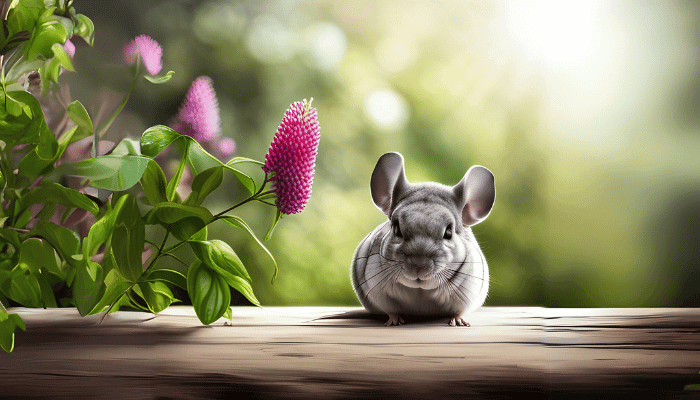
Understanding the root causes of biting behavior allows for effective prevention. Here are some tips to foster a harmonious relationship with your chinchilla:
Proper Socialization: Introduce your chinchilla to various stimuli and environments gradually.
Gentle Handling: Handle your chinchilla with care, avoiding sudden movements that may induce stress.
Regular Veterinary Check-ups: Ensure your chinchilla’s health is monitored regularly to address any potential pain or discomfort.
Create a Calm Environment: Provide a quiet and secure space for your chinchilla, minimizing stressors in their surroundings.
Tips for Minimizing Chinchilla Bites
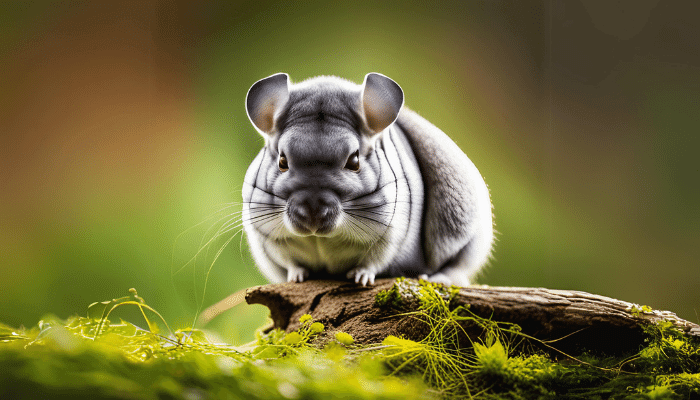
Gentle Handling: Approach your chinchilla with care and gentleness, allowing them to become accustomed to your touch.
Regular Interaction: Establish a routine for interaction, helping your chinchilla feel more secure and less likely to bite.
Create a Comfortable Environment: Ensure your chinchilla’s cage is spacious, well-ventilated, and filled with stimulating toys to prevent boredom and stress.
Common Myths About Chinchilla Biting
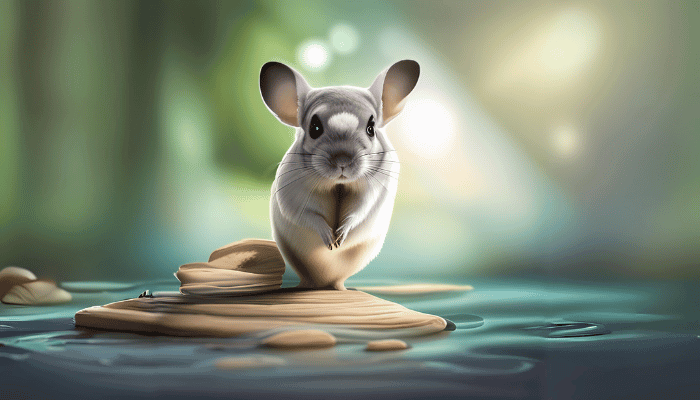
Separating fact from fiction is crucial in understanding chinchilla behavior. Let’s debunk some common myths:
Myth: Chinchillas Bite out of Spite
Contrary to popular belief, chinchillas do not bite out of spite or malice. Understanding their motivations can help dispel this myth and foster a better relationship with these delightful creatures.
Myth: Chinchillas Are Aggressive by Nature
Chinchillas have a reputation for being aggressive, but this stems from misunderstandings. Proper care, attention, and respect for their social needs can transform them into affectionate companions.
Conclusion
In the realm of chinchilla companionship, the question, “Do Chinchillas Bite?” can be met with a nuanced understanding of their behaviour. By delving into the factors influencing biting tendencies and implementing proactive measures, chinchilla owners can cultivate a trusting and enjoyable relationship with these charming rodents.
Do Chinchillas Bite? FAQs
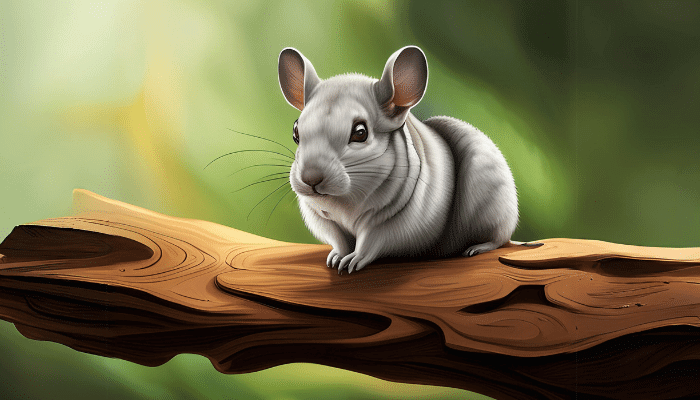
Why Do Chinchillas Bite During Playtime?
Chinchillas may bite during playtime if they are overstimulated or if they perceive certain movements as threatening. It’s essential to monitor their behavior and provide a calm play environment.
Can Chinchillas Be Trained Not to Bite?
Yes, chinchillas can be trained through positive reinforcement. Patient and gentle training methods can help modify their behavior over time.
Do All Chinchillas Bite?
No, not all chinchillas exhibit biting behavior. Individual personalities, early socialization, and a positive environment play key roles in shaping a chinchilla’s demeanor.
What Should I Do If My Chinchilla Bites?
If bitten, remain calm and avoid sudden movements. Assess the situation to identify potential triggers, and consider seeking advice from a veterinarian or experienced chinchilla owner.
Is Biting More Common in Certain Chinchilla Breeds?
Biting tendencies are not necessarily tied to specific breeds but can vary between individual chinchillas. Early socialization and positive interactions can help mitigate aggressive behavior.
Why Do Chinchillas Chew on Everything?
Chinchillas have ever-growing teeth, and chewing is a natural behavior that helps keep their teeth in check. Provide a variety of safe chew toys to satisfy their chewing instincts.
Do Chinchillas Bite When They’re Scared?
Yes, chinchillas may resort to biting when frightened. It’s essential to create a calm environment and gradually introduce them to new experiences.
Can Chinchillas Bite Due to Illness?
Absolutely. Pain or discomfort caused by illness can make chinchillas defensive. Regular veterinary check-ups are vital to ensure their well-being.
How to Stop a Chinchilla from Biting?
Patience is key. Identify the cause of biting, address the underlying issue, and gradually build trust through positive interactions.
Are All Chinchilla Bites Harmful?
Most chinchilla bites are not severe, resembling nibbles rather than aggressive bites. However, it’s crucial to discourage biting to maintain a harmonious relationship.
